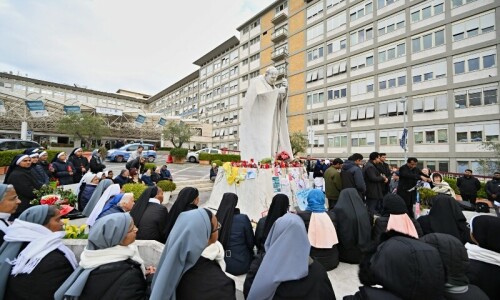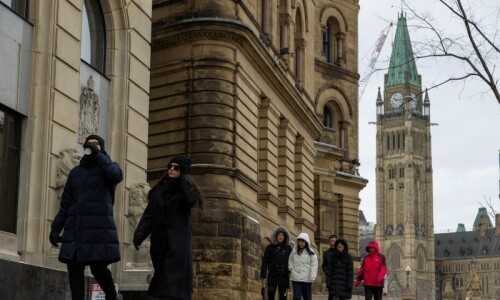BRASILIA (Brazil): At first glance a summit of Arab and South American leaders might seem an unlikely encounter. But Arab immigrants and their descendants have played a prominent role in Latin American life, from presidents such as former Argentine leader Carlos Menem to pop singers like Colombia’s Shakira.
They are a powerful force in business and commerce. The richest man in Latin America, Mexican telecommunications magnate Carlos Slim, is the son of a Lebanese immigrant.
Brazilian President Luiz Inacio Lula da Silva paid tribute to this heritage in his opening speech to a recent South American-Arab Summit in Brasilia, an unprecedented gathering of leaders from the two regions.
“This meeting has the feeling of a re-encounter for South Americans because of the civilization from which we came, with our Iberian heritage and later through immigration. These values are today a part of our very identity,” he said.
The first Arab influences may have come to Latin America with the Spanish and Portuguese conquistadors, whose own countries were just emerging from centuries of Arab rule.
Waves of immigration took place between the world wars and in the 1960s and 1970s, including families fleeing the Lebanese civil war.
An estimated 17 million Latin Americans are of Arab descent, of whom 6 million are Muslim and the rest Christian. Most are from Lebanon, Syria or Palestine.
About 10 million live in Brazil. Sao Paulo is full of Arab restaurants and many Paulistanos are as familiar with kibe and hummus as they are with rice and beans. The Syrian-Lebanese Club is among the poshest in the city.
The swank Sheraton Hotel in Sao Paulo, which claims to have a larger Arab population than Beirut, is owned by the Moffarej family and business tycoon Paulo Maluf is a former mayor.
“The way Brazilians negotiate has much to do with the first (Arab) immigrants who came here. That is to negotiate a lot and create confidence between client and businessman,” said Antonio Sarkis, president of the Arab-Brazilian Chamber of Commerce.
“Brazil has never been so close to the Arab countries as it is now, and vice versa, and this is the moment to deepen relations. There is a great empathy,” he said.
One of Brazil’s brightest literary talents, Milton Hatoum, writes about Lebanese immigrants in the Amazonian city of Manaus in novels such as “The Brothers” and “Tale of a Certain Orient.”
Shakira, a sensation from Miami to Buenos Aires, hails from the large Lebanese community on Colombia’s Caribbean coast.
Most of the Arabs arrived in Colombia about 100 years ago, many working as itinerant traders. They were known as “turcos”, because of the Turkey-based Ottoman empire which then dominated many Arab lands. Former President Julio Cesar Turbay’s grandfather was one such trader.
Ecuador has also had two recent presidents of Arab descent — Jamil Mahuad, who was overthrown in 2000, and Abdala “el Loco” Bucaram, fired by congress for “mental incompetence” in 1997.
Venezuela has a flourishing Arab community of about 1.5 million, most dedicated to business and commerce. Shop names like Flower of Palestine are a common sight in the tourist island of Margarita or ports of Puerto La Cruz and Maracaibo.
“Most Arabs came here to make a living, to work, and as this land was good to them, they’ve repaid that faith with hard work,” said Fadi Salloum, a Venezuelan of Syrian origin who runs a bilingual Spanish-Arabic newspaper in Caracas.
At least five deputies of Arab origin sit in Venezuela’s National Assembly and one state governor is of Lebanese descent.
Venezuela’s Arabs, who have their own mosques and clubs, bristle at accusations from the US military that radical Islamic groups have bases in Venezuela, especially on Margarita.
“The Americans...always say Arabs are terrorists,” Salloum said.
Similarly the Arab community in the Tri-Border region of Argentina, Paraguay and Brazil has come under scrutiny by US authorities who accuse it of money-laundering and generating funds for militant Islamic groups like Hezbollah and Hamas.
Chile, which has a large Palestinian community, does provide for the ancestral homeland — several players from the Palestino soccer club have played for the Palestinian national team.—Reuters















































